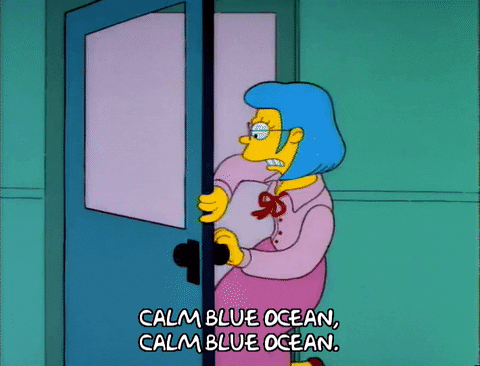
Setting and achieving goals is important, but can be challenging for a number of reasons. Maybe you’re not sure how to get started, or you’re having trouble staying motivated to reach your goal. Keep reading to find out how to set achievable goals and how you can accomplish them.
It’s important to understand why you should set goals for yourself in the first place. When you set goals for yourself, you set yourself on a path for success. Without goals, you won’t be able to grow and reach your full potential. Vivak Patel, Interim Director of Enrollment Management, says the following about the benefits of setting goals: “Goal setting not only helps us achieve new heights and grow as an individual, it creates the blueprint for transforming our visions into reality. Progressing towards goals will create a path full of satisfaction and setting goals are your first steps.” Once you recognize that, you can start the goal setting process.
Here’s how to get started:
1. Take responsibility: Acknowledge that you are in control of your life and if there’s something you want, you’re the one who has to take action to get it. Knowing yourself and realizing it’s up to you to follow through with it will help motivate you to take those first steps. As much as I wish I could just snap my fingers and magically do well on all my assignments in order to reach my goal of getting better grades, I know it’s up to me to study harder and put more time into my schoolwork if I want to do better. Plus, reaching a goal through your own efforts rather than the efforts of someone or something else makes reaching your goal feel like an even greater accomplishment.
2. Recognize what you want to achieve: Once you have a goal in mind, understand the reasons you want to achieve that goal. For example, my goal is to get better grades. I want to get better grades because I want to prove to myself that I’m smarter than I think and so I can set myself up for success after college. Knowing why I want to reach a certain goal is especially helpful for when I find myself struggling on the path to reaching it. My reasons for setting the goal in the first place remind me not to give up when things get difficult. On the path to success, you’ll likely face setbacks that may make you question whether or not your goal is really worth it. If something means a lot to you, you need to work to overcome the challenges and keep striving for it. Click here to read an article that shares 8 strategies for how to not give up.
3. Make a plan: When goal setting, it’s important to understand everything that you’ll have to do in order to reach that goal. Make sure your plan is realistic and attainable. Try to make a schedule that you’ll feel encouraged to stick with. For example, if you want to become a vegetarian, it’s much easier to start incorporating vegetarian alternatives into your meals gradually than to completely switch to an all-vegetarian diet. You could pick one day of the week where you only eat vegetarian foods, then slowly add another day, then do three days, and so on. Remember that some things will take time and there may be setbacks, but don’t let that discourage you. Make a plan and try your best to follow it closely, but make adjustments when you feel it’s necessary.
4. Don’t take on too much by yourself: Dr. Rachel Finley-Bowman, Dean of Student Success and Associate Provost, says this about not overwhelming yourself and feeling like you’re alone when trying to accomplish your goals: “When striving to set and achieve goals, two pieces of advice immediately come to mind – (1) think small and (2) ask for and accept support. The first suggestion doesn’t mean that you shouldn’t reach for your greatest dreams, but recognizes instead that any large goal is a sum of smaller parts. Prioritize and focus upon how you can achieve each part along the way. This helps to lessen anxiety about the overall task and gives you victories to celebrate as you progress in your journey. Teamwork and collaboration also promote achievement and so don’t be afraid to ask for support or accept it when it is offered. Every faculty and staff member in the MU learning community are stakeholders in your success. Leverage our expertise and guidance to help you achieve your goals.”
5. Visualize your goals and visualize yourself achieving them: Once you have an idea of what it will look like when you reach your goals, you’ll feel more inspired to achieve them. If your goal is to participate in more community service events, picture what that will look like and how it will feel to help others. Visualizing your goals will also help you recognize if a goal is unrealistic or not. If you’re a student taking several classes and you also have a job where you work long shifts, you may realize that participating in community service events regularly would be a challenge and you can adjust your goal accordingly. Vivak Patel recommends creating a vision board to help with visualization. He says, “Create, print, and cut out images that associate with your goals and hang them up on a board or even your wall. Place it in your room or somewhere that is visible for you. Look at your vision board each morning. Visualization will help you reach the goals that you set and this technique is used by the most successful people in the world.”
6. Reward yourself along the way: As you get closer to reaching your goal, reward yourself as an incentive to keep working. Whenever I study really hard for a test and do well on that test, I like to reward myself by buying my favorite candy. Telling myself that I’ll get M&M’s if I work hard gives me the motivation to get things done. It also makes me feel good after my hard work pays off and makes me want to study harder for my next test. You should also reward yourself because you deserve to! Working towards a goal takes determination and work. Reaching milestones when trying to accomplish a certain goal, no matter how big or small, deserves recognition and celebration.
If there’s something you want to achieve, follow the steps above to help you achieve it. Remember that the faculty and staff at MU want to help you succeed however they can. Reach out to them for guidance and support when setting and achieving goals. Comment some goals you have that you’d like to start working towards. Remember, if you really want something and believe that it’s attainable, don’t give up on it!
Subscribe to our blog to receive email notifications whenever we make a new post!
Follow us on social media:
Twitter: @villehousing. Twitter QR Code:

Instagram: @villehousing. Instagram Nametag:






















